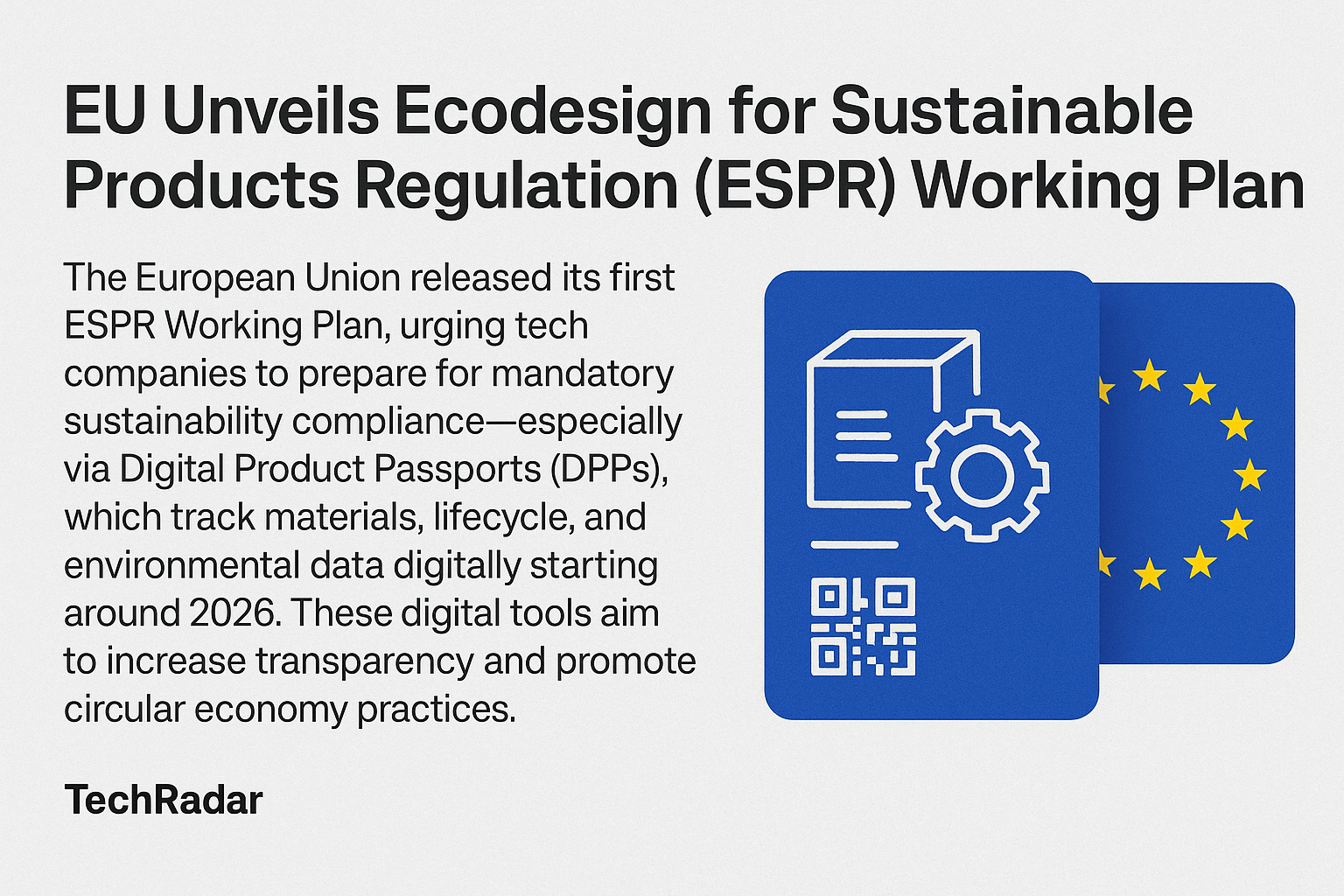The European Union is pushing the sustainability agenda forward with the release of its first Ecodesign for Sustainable Products Regulation (ESPR) Working Plan—and tech companies need to pay close attention.
At the heart of the plan is the Digital Product Passport (DPP), a tool designed to revolutionize how products are manufactured, tracked, and disposed of across the EU. Starting around 2026, many categories of products will be required to include detailed digital records outlining material composition, lifecycle information, repair options, and environmental impact.
This initiative isn’t just another compliance box to tick. The EU is building an integrated framework to increase transparency, promote circular economy practices, and reduce waste on an industrial scale. By standardizing sustainability data and making it accessible throughout supply chains, the ESPR aims to shift companies toward long-term environmental responsibility.
What is the Digital Product Passport (DPP)?
The DPP acts as a dynamic information tag for every product, stored digitally and easily accessible through scanning or integration with enterprise systems. For example, a smartphone’s DPP might contain data about its battery composition, recycling options, energy efficiency ratings, and repairability score—all verified and up to date.
This will empower consumers to make greener choices, allow regulators to monitor compliance more effectively, and help businesses optimize resource use while cutting costs.
Why is this significant for tech companies?
-
Mandatory compliance: Manufacturers won’t have a choice. Products entering the EU market will need to comply with ESPR standards.
-
Supply chain restructuring: Companies must map out material flows in unprecedented detail, requiring new digital infrastructure.
-
Innovation opportunity: Businesses that adapt early can position themselves as sustainability leaders, gaining both regulatory approval and consumer trust.
The bigger picture: A Circular Economy by design
The EU’s ESPR Working Plan aligns with its broader Green Deal objectives—making Europe the first climate-neutral continent. Digital transparency tools like the DPP will make it far harder for companies to hide unsustainable practices, pushing entire industries toward reuse, repair, and recycling rather than endless consumption.
With just a few years before implementation, companies need to start preparing now—building data pipelines, revisiting product design strategies, and ensuring their supply chains are ready for a new era of accountability.
The message is clear: sustainability will no longer be optional—it will be engineered into every product sold in Europe.




